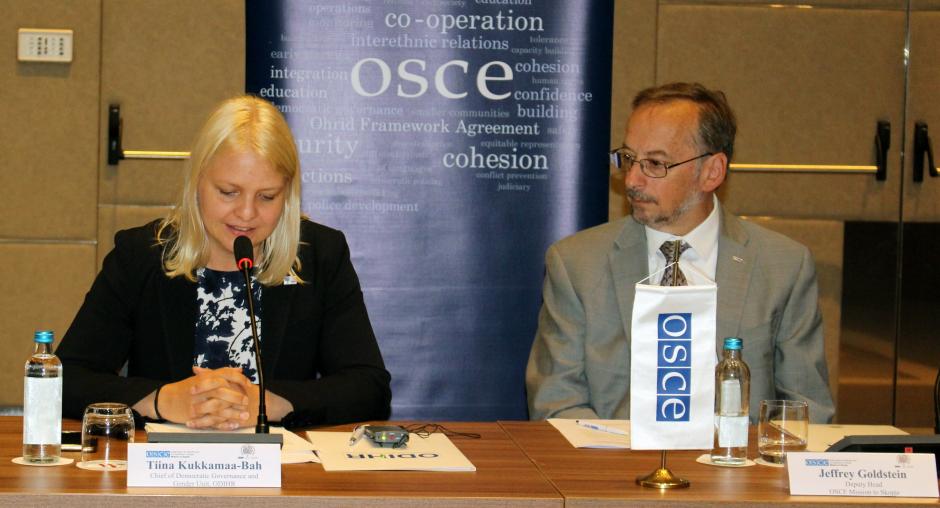Experts and activists meet in Skopje to discuss political participation of people with disabilities

The stronger political engagement of people with disabilities at the national level and increased co-operation with organizations representing them were discussed during two events organized in Skopje this week by the OSCE Office for Democratic Institutions and Human Rights (ODIHR) in co-operation with the OSCE Mission to Skopje.
Some 40 experts and politicians with disabilities, representatives of disabled people’s organizations, civil society and international organizations contributed to the discussions during the events, which included an informal meeting with local disabled people’s organizations on 21 June and an expert meeting on the political participation of people with disabilities on 22 June.
"Equal participation of all people with disabilities in public affairs implies, in particular, fully accessible voting procedures without any restrictions,” said Damjan Tatić, Vice-Chairperson of the Committee on the Rights of Persons with Disabilities. “Implementing such procedures helps strengthen democracy and brings us a step closer to guaranteeing that people with disabilities are no longer ‘invisible citizens’ who face multiple risks of discrimination, exclusion and marginalization in their societies.”
The participants shared examples of positive practices from their countries and areas of work that increase the participation of people with disabilities in legislative and executive decision-making processes in the OSCE region.
“The discussion helped identify specific challenges in promoting the political participation of people with disabilities and provided ideas for concrete action that could bring positive results in different national contexts,” said Tiina Kukkamaa-Bah, Chief of the ODIHR Democratic Governance and Gender Unit.
Jeffrey Goldstein, Deputy Head of the OSCE Mission to Skopje, said: “The OSCE Mission to Skopje stands ready to assist the country in improving the participation of people with disabilities in political, public and social life. This is a crucial step to fight existing stereotypes, prejudices and segregation in our societies.”
The events were part of the ODIHR project “Our right to participate – Promoting the participation of persons with disabilities in political and public life.”
